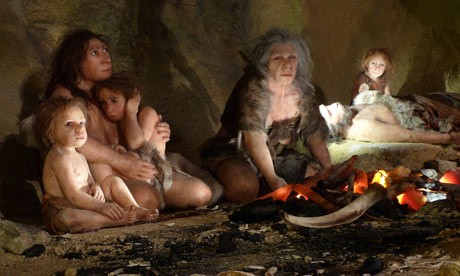
The much-debated question of the relationship between the modern human beings and Neanderthals have been answered by a study which suggested they interbred as recently as 37,000 years ago or as old as 86,000 rears ago.
The study published in the open-access journal PLoS Genetics was conducted by the researchers of Harvard and the Max Planck Institute. They studied the extent of linkage disequilibrium (LD) in the genomes of present-day Europeans inorder to understand why the present-day humans share more genetic variants with Neandertals.
"The union of the resulting intervals leads us to conclude that the true date of gene flow could be as young as 37,000 years BP or as old as 86,000 years BP," the pubhlished study cited.
The result supports the early assumption that the two human ancestors lived side by side peacefully.
The analysis of the recent study also threw light on the fact that the modern Non-African human beings share more genome similarities with the Neanderthals ancestors.
"I think we will be able to get new insights on how modern humans adapted as they occupied new regions," Sankararaman, a statistical geneticist at Harvard Medical School told LiveScience. "It shows the power of genetic data to learn about historical events."
In 2010, the sequencing of Neandertal genome suggested that the Africans share less genetic similarities within the Neandertals than the non-Africans. On the face of the new study, it can be said that Neandertals had children with the ancestors of the present day humans.
"If this substructure persisted until modern humans carrying Upper Paleolithic technologies expanded out of Africa so that the modern human population that migrated was genetically closer to Neandertals," suggested the study. "people outside Africa today would share more genetic variants with Neandertals than people in sub-Saharan Africa."
Though the study suggested the posiibility of interbreeding with the two ancestral humans, the scientist did not rule out the possibility of the existence of sub-structure in the early populations.
"Genetic analyses by themselves offer no indication of where gene flow may have occurred geographically," the researchers said. "However, the data in conjunction with the archaeological evidence suggests that the two populations likely met somewhere in Western Eurasia."
According to the Fox News, the futre research will focus on the other interbreeding like modern Papuans and Denisovans. Denisovans are the recent unearthed human ancestry.









